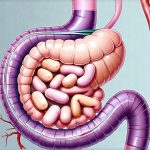It’s a frustratingly common experience: you enjoy a meal, feeling perfectly comfortable immediately afterward, only to be hit with bloating, gas, cramping, or even more disruptive digestive issues hours later. This disconnect between initial tolerance and subsequent distress leaves many wondering what exactly went wrong. Often it’s not what you ate in isolation, but rather the complex interplay of factors relating to your individual physiology, meal composition, eating habits, and even stress levels that determines whether a food will ultimately be well-tolerated or trigger unpleasant symptoms. Understanding these underlying mechanisms is crucial for managing digestive health and identifying potential sensitivities without necessarily resorting to overly restrictive diets.
The digestive system isn’t simply a passive receiver of food; it’s a highly dynamic and sensitive ecosystem constantly adapting to incoming inputs. Many individuals unknowingly have subtle variations in their digestive capabilities – differences in enzyme production, gut motility rates, or the composition of their microbiome—that influence how they process various foods. These factors aren’t necessarily signs of disease but rather inherent individual characteristics that can predispose someone to react differently to the same meal compared to others. This explains why a food perfectly acceptable to one person can cause significant discomfort in another. Furthermore, seemingly innocuous choices made around the meal—like eating too quickly, combining certain foods in specific ways, or experiencing stress during consumption—can significantly impact digestion and contribute to delayed symptoms. If you consistently experience digestive trouble after meals, exploring potential causes is vital.
Delayed Digestive Reactions: The Time Factor & Gut Motility
The timing of digestive upset is a key indicator that something beyond simple food intolerance is at play. Immediate reactions usually point toward allergies or acute sensitivities where the body recognizes an ingredient as harmful and reacts quickly. However, delayed symptoms – appearing several hours after eating – suggest a more nuanced issue related to how food moves through your digestive tract and interacts with your gut microbiome. Gut motility, the speed at which food travels along the digestive pathway, is hugely influential here. If food passes too quickly (leading to diarrhea) or too slowly (causing constipation), it disrupts optimal digestion and absorption, increasing the likelihood of discomfort.
A slower transit time allows more opportunity for fermentation by bacteria in the colon. While some bacterial fermentation is healthy and produces beneficial short-chain fatty acids, excessive fermentation—particularly of undigested carbohydrates – generates gas, bloating, and cramping. This process can be exacerbated by certain food combinations or a lack of dietary fiber. Conversely, rapid transit time may not allow sufficient breakdown of complex carbohydrates, leading to malabsorption and similar symptoms. Identifying the root cause often requires careful observation of symptom timing in relation to different foods and eating patterns. Testing can help pinpoint these sensitivities.
The state of your digestive system before the meal also matters significantly. If you’re already mildly dehydrated, stressed, or lacking adequate sleep, your gut motility and digestive enzyme production can be compromised, making you more susceptible to delayed reactions. It’s not always about the food itself; it’s about the context in which it’s consumed and the overall health of your digestive system.
Understanding Food Combining & Enzyme Deficiencies
The concept of food combining, though often debated, highlights how different foods digest at varying rates. While there isn’t strong scientific evidence to support strict food-combining rules for most people, it can provide a useful framework for understanding why certain combinations might be harder to digest for some individuals. For example, pairing large amounts of protein with carbohydrates (like steak and potatoes) requires significantly different digestive enzymes and stomach acid levels. This can overload the system, potentially leading to incomplete digestion and fermentation in the colon.
Enzyme deficiencies are another common contributing factor. Many people lack sufficient quantities of specific enzymes needed to break down certain foods. Lactose intolerance is a classic example – a deficiency in lactase, the enzyme required to digest lactose (milk sugar), leads to bloating, gas, and diarrhea after consuming dairy products. Similar deficiencies can exist for other carbohydrates (like fructose) or proteins. These deficiencies aren’t always diagnosed, making it difficult to pinpoint the cause of delayed digestive issues. Why some digestive enzymes are more effective than others can play a role here. Testing for specific enzyme deficiencies is available, but often a period of careful dietary elimination and reintroduction guided by a healthcare professional is more effective in identifying sensitivities.
The Role of FODMAPs & Fermentation
FODMAPs (Fermentable Oligosaccharides, Disaccharides, Monosaccharides, and Polyols) are short-chain carbohydrates that are poorly absorbed in the small intestine. This means they reach the colon where bacteria readily ferment them, producing gas as a byproduct. Foods high in FODMAPs include onions, garlic, apples, pears, wheat products, beans, and dairy (for those lactose intolerant). While FODMAPs aren’t inherently bad – they can actually nourish beneficial gut bacteria—individuals with sensitive digestive systems may experience significant bloating, cramping, and altered bowel habits when consuming them.
A low-FODMAP diet is often recommended for managing Irritable Bowel Syndrome (IBS) symptoms, but it’s best implemented under the guidance of a registered dietitian to ensure nutritional adequacy. The key is not necessarily eliminating FODMAPs entirely, but identifying your individual tolerance levels and adjusting intake accordingly. It’s crucial to remember that the gut microbiome plays a significant role in how FODMAPs are processed; individuals with dysbiosis (an imbalance in gut bacteria) may be more susceptible to fermentation-related symptoms. If you suspect herbal supplements contribute, consider an elimination diet.
Stress & The Gut-Brain Connection
The connection between your brain and gut – known as the gut-brain axis – is profound. Stress, anxiety, and even mild emotional upset can significantly impact digestive function. When you’re stressed, your body releases cortisol, a hormone that diverts blood flow away from the digestive system and towards muscles preparing for “fight or flight.” This reduces enzyme production, slows gut motility, and impairs nutrient absorption.
Eating while stressed is particularly problematic. The body isn’t able to properly focus on digestion when in a heightened state of arousal. Even if you enjoy a meal while feeling anxious, the compromised digestive process can lead to delayed symptoms. Techniques for managing stress – such as deep breathing exercises, meditation, yoga, or simply taking time to relax before and after meals—can significantly improve digestive health. Furthermore, mindful eating practices – focusing on your food, chewing thoroughly, and savoring each bite—promote optimal digestion by stimulating saliva production and enhancing enzyme activity.
It’s important to note that persistent or severe digestive issues warrant a consultation with a healthcare professional. While many delayed reactions can be managed through dietary adjustments and lifestyle modifications, underlying medical conditions such as celiac disease, inflammatory bowel disease (IBD), or gastroparesis may require specific treatment plans. If your gut test came back normal but you still experience issues, further investigation is warranted. This information is intended for general knowledge and informational purposes only, and does not constitute medical advice. Some people are also sensitive to nightshades which can cause issues. Finally, salads can sometimes be the culprit!


















